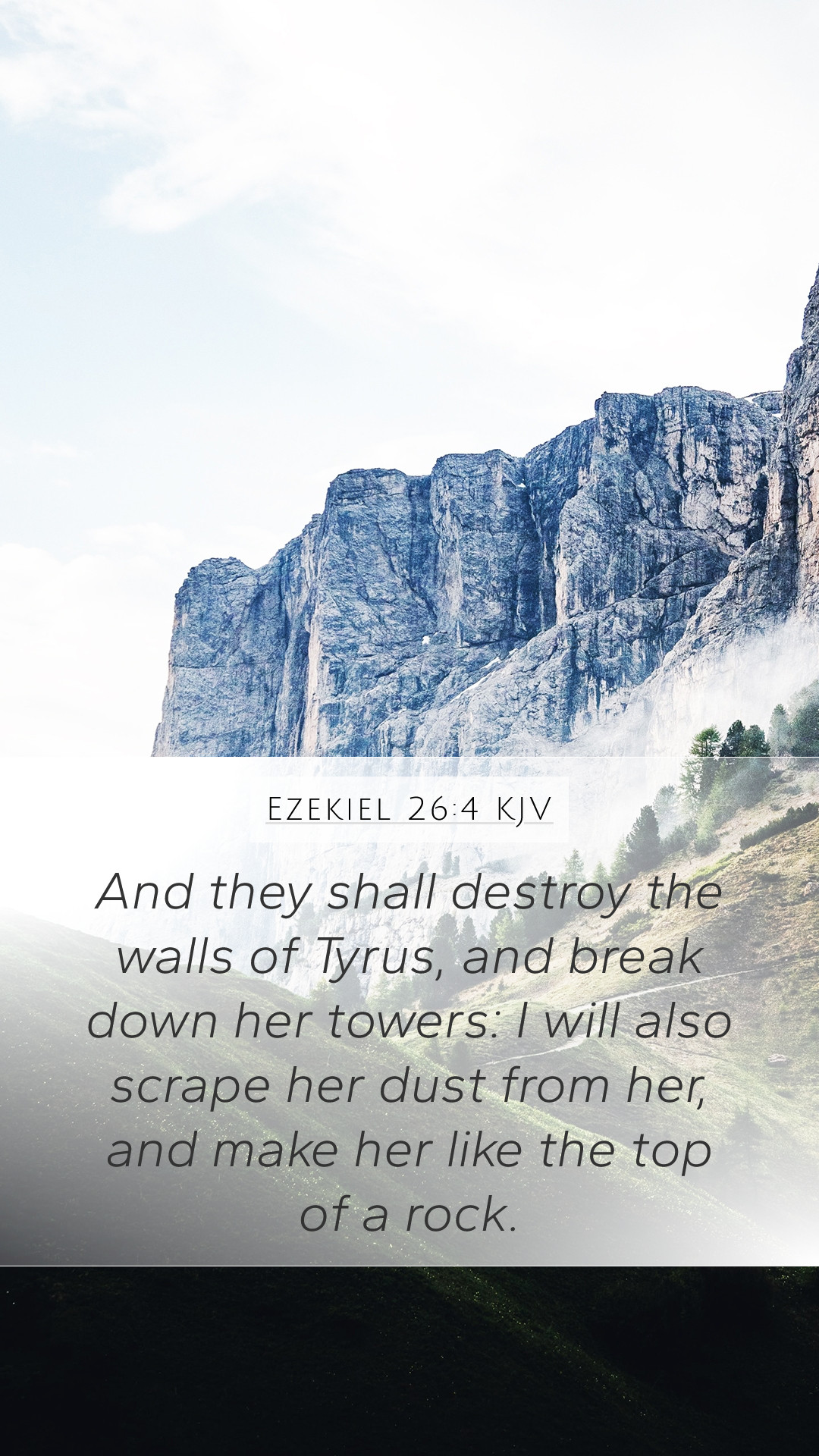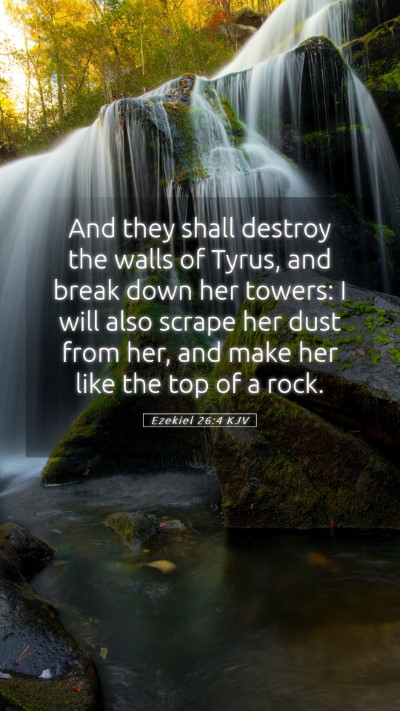Ezekiel 26:4 - Bible Verse Meaning and Interpretation
Ezekiel 26:4 states, "And they shall destroy the walls of Tyre, and break down her towers: I will also scrape her dust from her, and make her like the top of a rock."
This verse speaks to the impending judgment and destruction of the city of Tyre, reflecting God's sovereignty over nations and fulfilling prophecy through the prophet Ezekiel.
Summary of Ezekiel 26:4
In this verse, God expresses through Ezekiel the complete destruction of Tyre, symbolizing the fate of those who oppose Him. The imagery of scraping dust and making Tyre like a bare rock signifies total desolation and abandonment, serving as a warning to other nations.
Insights from Public Domain Commentaries
Matthew Henry's Commentary
According to Matthew Henry, this verse highlights the surety of God's judgment against Tyre. He emphasizes that the city, known for its strength and wealth, will be laid waste, demonstrating the futility of human pride against divine power. The reference to scraping dust conveys the idea that nothing will be left of Tyre but a barren rock, indicating a total and utter destruction without restoration.
Albert Barnes' Notes
Albert Barnes provides an in-depth look at the historical context of Tyre's fall. He notes that the city's walls and towers, once symbols of its defense and glory, will be dismantled. Barnes highlights that this destruction is not merely physical but signifies God's judgment upon nations that oppose His will. The phrase "like a rock" suggests that Tyre will become uninhabitable, serving as a desolate reminder of God's justice.
Adam Clarke's Commentary
Adam Clarke focuses on the metaphorical language in this verse, indicating that the ruin of Tyre reflects more than just physical destruction; it is a divine statement against pride and arrogance. Clarke interprets the "dust" as a symbol of the utter humiliation that comes from such downfall. He reinforces the idea that the destruction is both a literal event and a spiritual lesson for Israel and the surrounding nations about God's unyielding authority.
Understanding Ezekiel 26:4 in Context
To fully grasp the meaning of Ezekiel 26:4, it is essential to consider the historical and cultural context of Tyre during the time of Ezekiel. Tyre was a powerful Phoenician city-state known for its strong economic position in trade and maritime activity. Ezekiel’s prophecy against Tyre serves as a reminder of God’s judgment against nations that engage in prideful rebellion.
Application of Ezekiel 26:4
Reflecting on the verse, believers today can draw parallels to the attitudes of pride and self-sufficiency in their own lives. It serves as a reminder that God opposes the proud but gives grace to the humble (James 4:6). The verse encourages us to rely on God’s strength rather than our own, emphasizing the importance of humility and obedience to God’s will.
Cross References
- Isaiah 23:1-18 - A prophecy concerning the fall of Tyre
- Ezekiel 27 - A lamentation for the city of Tyre
- Amos 1:9-10 - God's judgment on Tyre for their transgressions
Conclusion
Ezekiel 26:4 serves as a profound reminder of God’s sovereignty and the consequences of defiance against Him. Through various biblical commentaries, we gain a deeper understanding of Scripture and the moral teachings that remain relevant today. By studying the context and implications of this verse, individuals can grow in their Bible verse interpretations and enhance their Bible study insights.
Additional Resources for Bible Study
- Bible Study Groups: Join a community to explore scripture collectively.
- Online Bible Study: Utilize digital resources for deeper exploration of biblical texts.
- Bible Study Guides: Access guides that offer systematic approaches to studying the Bible.


